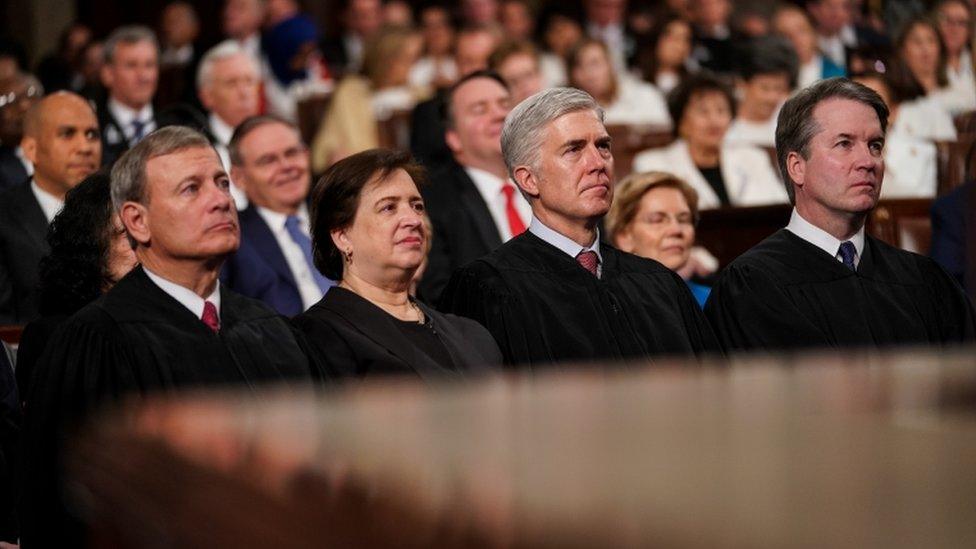Abortion, gun control, death penalty: How this US Supreme Court could change America
- Published
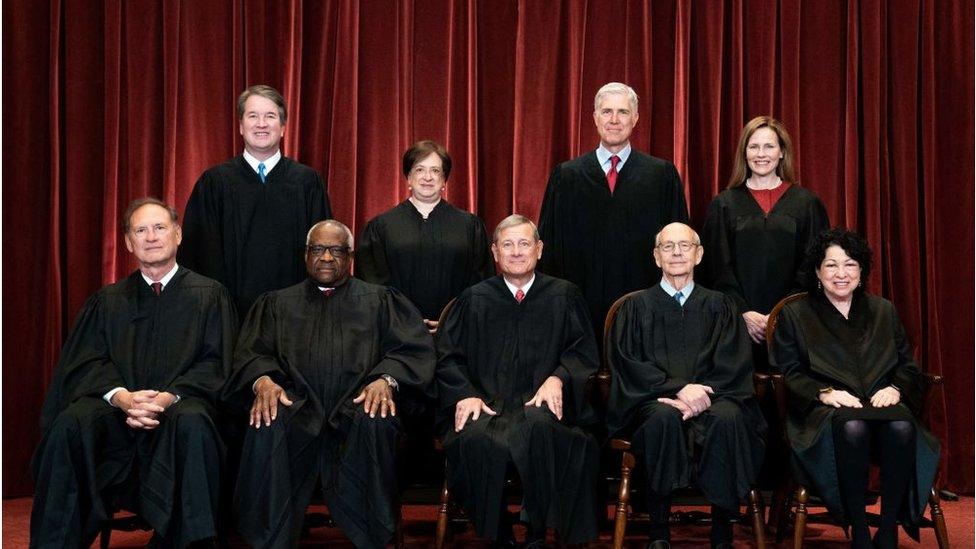
The nine justices of the US Supreme Court
Ever since Donald Trump appointed three conservative justices to the Supreme court during his four-year presidential term, it seemed to many like it was just a matter of time before the highest judicial body in the US started flexing its muscles by tackling some of the hot-button political and legal issues in the country today.
With the start of a new court term on Monday, that time may have arrived.
The upcoming docket has a handful of cases - on topics such as abortion, gun control, national security and religion - that could not only set lasting precedent for US courts, but fundamentally change the fabric of US society.
More than few a political activists across the spectrum have taken notice, prompting some - particularly on the left - to issue dire warnings about the vast power of the judicial branch and suggest ways that power could be restrained, either through changing the composition of the Supreme Court or curtailing its authority.
All this criticism has led conservatives on the court to bristle at the accusations that they have a political agenda.
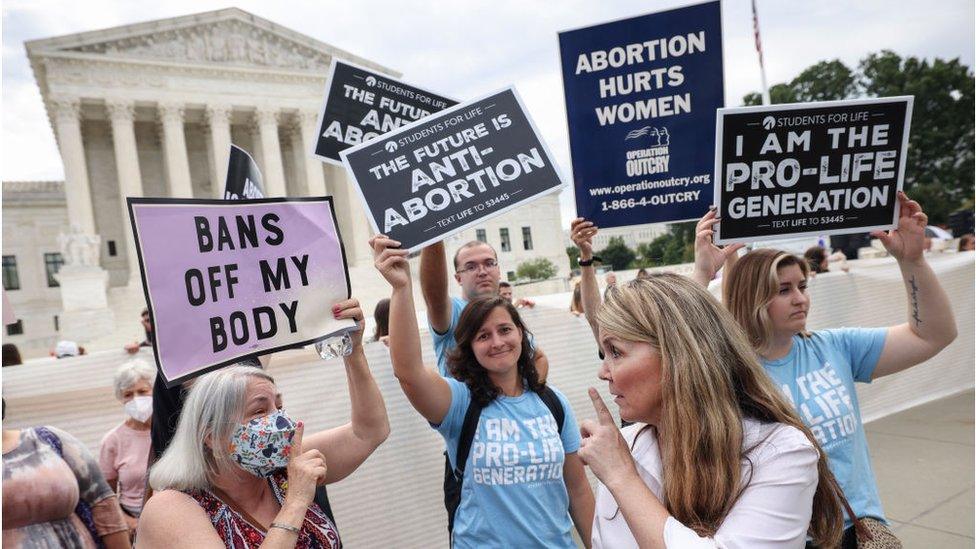
Supporters of abortion access faced off with opponents in demonstrations outside the US Supreme Court this weekend
Justice Samuel Alito said critics were undertaking "unprecedented efforts to intimidate the court". Amy Coney Barrett, who replaced liberal justice Ruth Bader Ginsburg after her death last October, pushed back against those who say the justices are "a bunch of partisan hacks". Clarence Thomas, the longest-serving justice on the court, blamed the media for making it seem like judges were like politicians who rule based on their "personal preferences".
If the conservative justices all vote together one of these major cases - dismantling abortion protections, for instance - such pleas may fall on deaf ears.
Abortion
This will be one of the most-watched cases in recent Supreme Court history, as anti-abortion activists believe the conservative-dominated court could finally abandon nearly five decades of precedent under the landmark case Roe v Wade and allow states to impose new restrictions on abortions during the first six months of pregnancy.
The case involves a Mississippi law prohibiting most abortions after the 15th week or pregnancy - a law that was designed from the start to give the court a chance to change course on this politically heated issue.
Gun control
For most of US history, the Supreme Court made little effort to define the "right to bear arms" outlined in the Second Amendment to the US Constitution. That all changed in the landmark 2008 case District of Columbia v Heller, in which a narrow majority of the justices upheld a constitutional right to own a handgun.
The latest target for gun-rights advocates are strict city and state regulations that they say infringe on that right. In the cross-hairs this term is New York City's tightly restricted access to concealed-carry handgun licences - a case that could give the justices an opportunity to rule that carrying a pistol, even in big cities, should be much easier.
Capital punishment
The topics of religious freedom and capital punishment clash in a Texas case, where a death row inmate has sued to allow his minister to say prayers by his side while in physical contact during his execution.
Another, more tangential, capital punishment case that is sure to generate headlines involves Boston Marathon bomber Dzhokhar Tsarnaev.
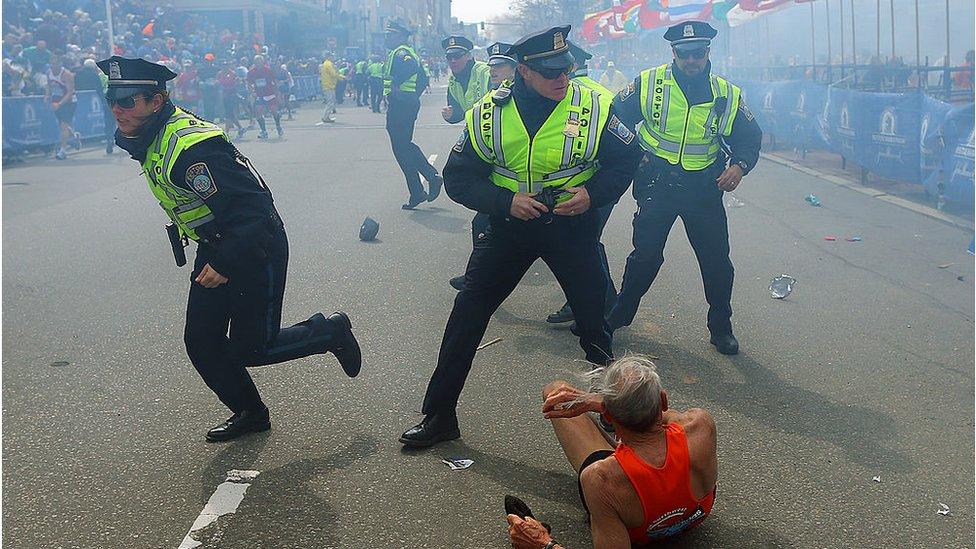
Three people were killed and more than 260 injured in the 2013 attack.
A lower court ruled his death sentence was invalid because his jurors were biased by media coverage before his trial, as well as because they were told about other murders committed by Tsarnaev's brother, who conspired with him on the bombings and was killed by police during their pursuit. The Biden administration wants that sentence reinstated.
State secrets
Sometimes multiple cases in the court's term can touch on various aspects of the same issue. This year, two lawsuits involve the kind of information the government can withhold in the name of "state secrets" and national security.
The first involves Guantanamo Bay detainee Abu Zubaydah, who is seeking information about US-run interrogation "black sites" and the Central Intelligence Agency contractors he is suing for allegedly torturing him. The second is related to a suit from a group of Muslim men in California who allege the Federal Bureau of Investigation engaged in religious discrimination when it monitored members of their community for possible terrorism connections.
Religious freedom
If there's been one area where the court has demonstrated its conservative bent in recent years, it's on issues involving religious liberty and alleged infringements on it.
The court this term has taken up a case challenging a state's ability to exclude parochial schools from a programme that gives students money to use for private-school education. It seems highly unlikely, given the recent track record of this court, that such a policy will survive.
The "shadow docket"
Although this court term may have more than its share of controversial decisions, there are some recent lower-court disputes the justices could have stepped into - but didn't.
The court passed up on a case challenging the constitutionality of a male-only military draft, an attempt to give the District of Columbia a voting member of Congress and a few direct challenges to the death penalty.
Sometimes, however, a decision not to hear a case - or to issue an "emergency" order on some specific legal dispute - can have nearly as big an impact on the legal landscape in the US as those that make it to the Supreme Court calendar.
The impact of the strictest anti-abortion law in the US
The court has increasingly relied on what's been called this "shadow docket" - short, frequently unsigned opinions issued without fanfare and often outside of normal business hours.
Three recent examples of the trend involved Supreme Court action on an extremely restrictive Texas abortion law, a Trump-era policy requiring asylum-seekers to stay in Mexico and a Biden administration attempt to continue a temporary moratorium on home evictions.
While the court's traditional rulings take months to work from legal briefs to oral arguments to a decision - and this term's big cases probably won't be announced until May or June of 2022 - the shadow docket can unfold quickly and move in unpredictable directions.
In other words, there may be more legal tectonics from this court term in store.
More by Anthony:
- Published3 October 2021
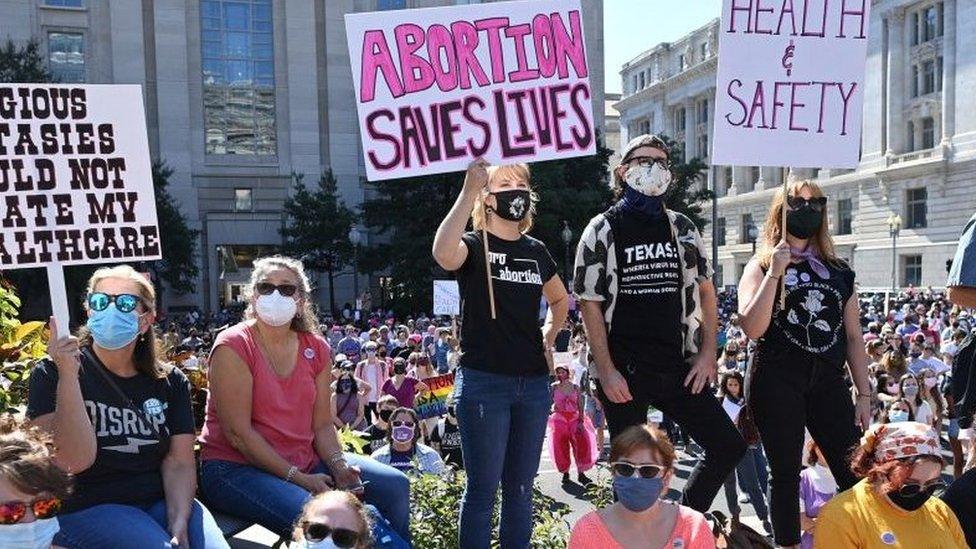
- Published2 September 2021
- Published17 May 2021

- Published9 September 2021
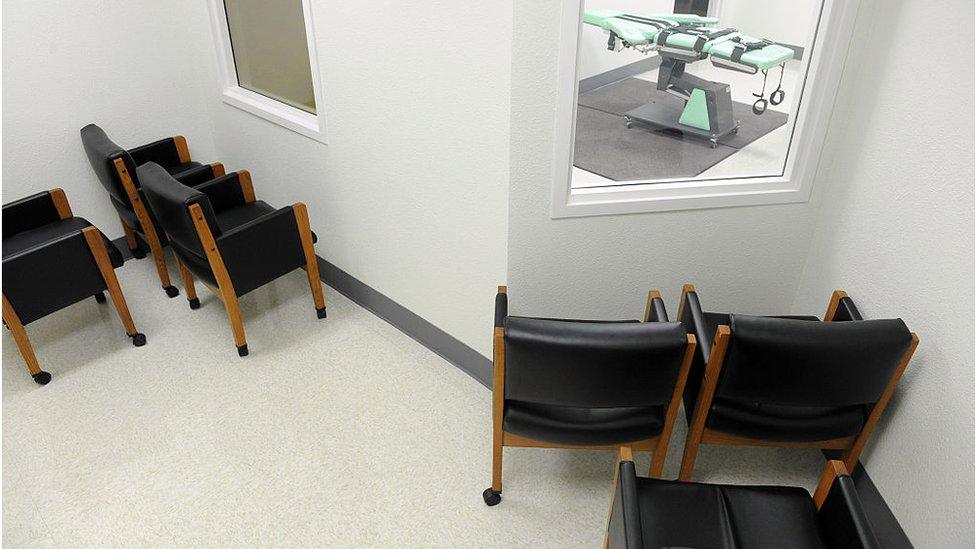
- Published22 March 2021

- Published19 September 2020
